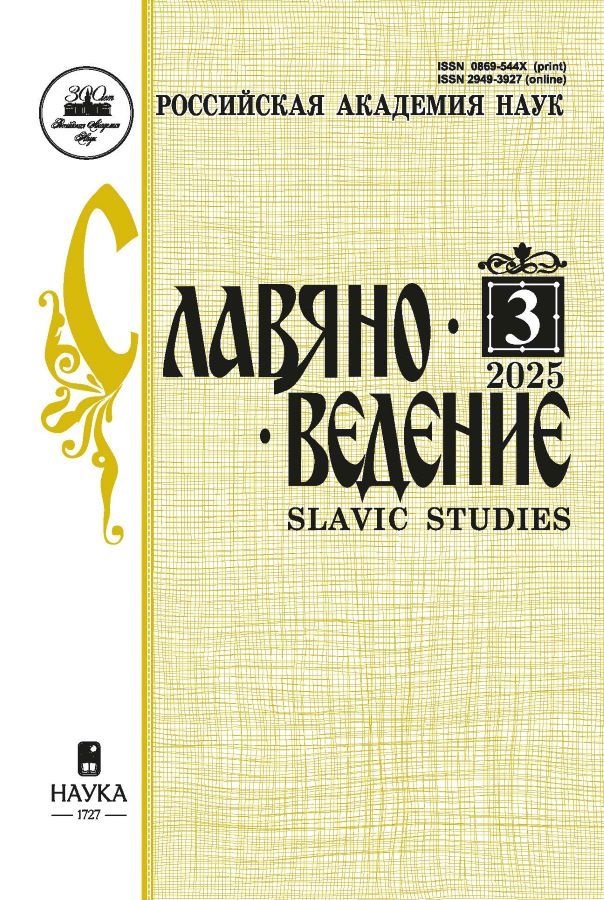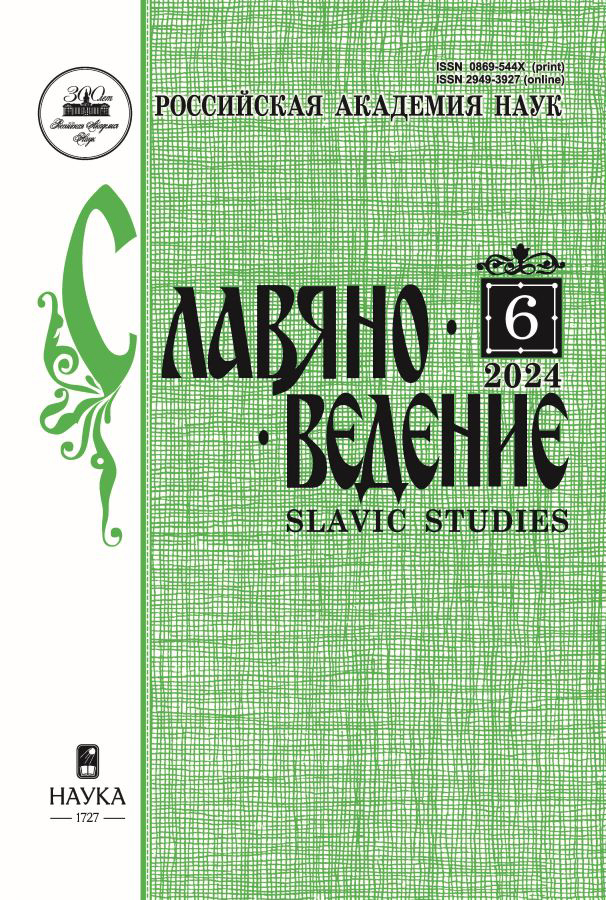Problems of czech-slovak relations in the 20th century viewed by the soviet historian (July 1968)
- Authors: Stykalin A.S.1,2
-
Affiliations:
- Institute of Slavic Studies of Russian Academy of Sciences
- Institute of General History of Russian Academy of Sciences
- Issue: No 6 (2024)
- Pages: 127-140
- Section: From the history of Slavic studies
- URL: https://rjmseer.com/0869-544X/article/view/652929
- DOI: https://doi.org/10.31857/S0869544X24060105
- EDN: https://elibrary.ru/XGNZHL
- ID: 652929
Cite item
Abstract
The Prague Spring of 1968 is known primarily as a mass democratic movement aimed at giving fresh strength to real socialism, increasing its effectiveness and external attractiveness. Getting ahead of its time, it was stopped by the ruling elites of the USSR and of the Soviet bloc countries, who were not ready for such a far-reaching liberalization of system in one of the socialist countries. The literature concerning the Prague Spring and the August 1968 intervention is extremely extensive and diverse, but putting into circulation of new sources remains actual. The notes and reports of the Soviet experts in the problems of Czechoslovakia and its culture who visited the country in the months of the Prague Spring add new facts to the picture of events and above all expand our knowledge of the perception by the domestic intelligentsia of the processes which took place in the neighbor country. We offer to our readers a report on a visit to the congress of Slovak historians in July 1968 by an employee of the Institute of Slavic Studies of the USSR Academy of Sciences P.I. Rezonov, who noted not only the differences in the approaches of Czech and Slovak historians to the common past in the relations between these two nations, but also the priority attention of the Slovaks to the problems of federalization of the country, which was not always supported by the Czech reformers, who put the tasks of general democratization at the forefront.
About the authors
Alexander S. Stykalin
Institute of Slavic Studies of Russian Academy of Sciences; Institute of General History of Russian Academy of Sciences
Author for correspondence.
Email: zhurslav@gmail.com
ORCID iD: 0000-0003-0834-9090
PhD (History), Leading Research Fellow
Russian Federation, Moscow; MoscowReferences
- «Byvshaya Czechoslovakia sokhranilas’ v vide obschego kul’turnogo prostranstva». Slovatskii vzglyad na opyt sosususchestvovaniya c czekhami v edinom gosproekte v XX veke. Beseda so slovatskimi istorikami. Istoricheskaya expertiza, 2022, no.1, pp. 123–143. (In Russ.)
- Dubček A. Nadezhda umiraet poslednei. Moscow, Novy khronograf Publ., 2019, 352 p. (In Russ.)
- Hájek M. Vospominaniya o cheshskih levyh. Moscow; St. Petersburg, Nestor-Istoriya Publ., 2019, 488 p. (In Russ.)
- Mar’ina V.V. Sovetsko-czechoslovatskaya komissiya istorikov. Deyatel’nost’ na fone obschestvenno-politicheskih peremen v SSSR I TsSSR (konets 60-h – 80-e gody XX v.). Moscow, Institut slavyanovedeniya RAN, 2014. 160 p. (In Russi.)
- «Na ideologicheskom postu: 1960-je». Vospominaniya sotrudnikov TsK KPSS. Neprikosnovennyi zapas. 2008, no. 4, pp. 154–158. (In Russ.).
- Stykalin A.S. Chto dumali rumynyi ob SSSR v 1964 g. (Svidetel’stvuet sovetskii diplomat). V poiskakh novykh putei. Vlast’ i obschestvo v SSSR i stranakh Vostochnoi Evropy v 50-e – 60-e gg. XX v., оtv. red. N.M. Kurennaya. Moscow, Institut slavyanovedeniya RAN, 2011, pp. 367–398. (In Russ.).
- Stykalin A.S. Czechoslovakia vesnyi 1970 g. glazami sovetskoi pisatel’skoi delegatsii. Slavyanskii al’manakh, 2022, no. 3–4, pp. 430-447. (In Russ.)
- Zadorozhniuk E.G. Czechoslovatskaya oppozitsiya posle porazheniya Prazskoi vesnyi: ishodnyie tochki ideinoi differentsiatsii. 1968. «Prazhskaya vesna». Istoricheskaya retrospektiva, оtv. red. G.P. Murashko. Moscow, ROSSPEN Publ., 2020, p. 658–686. (In Russ.)
Supplementary files











